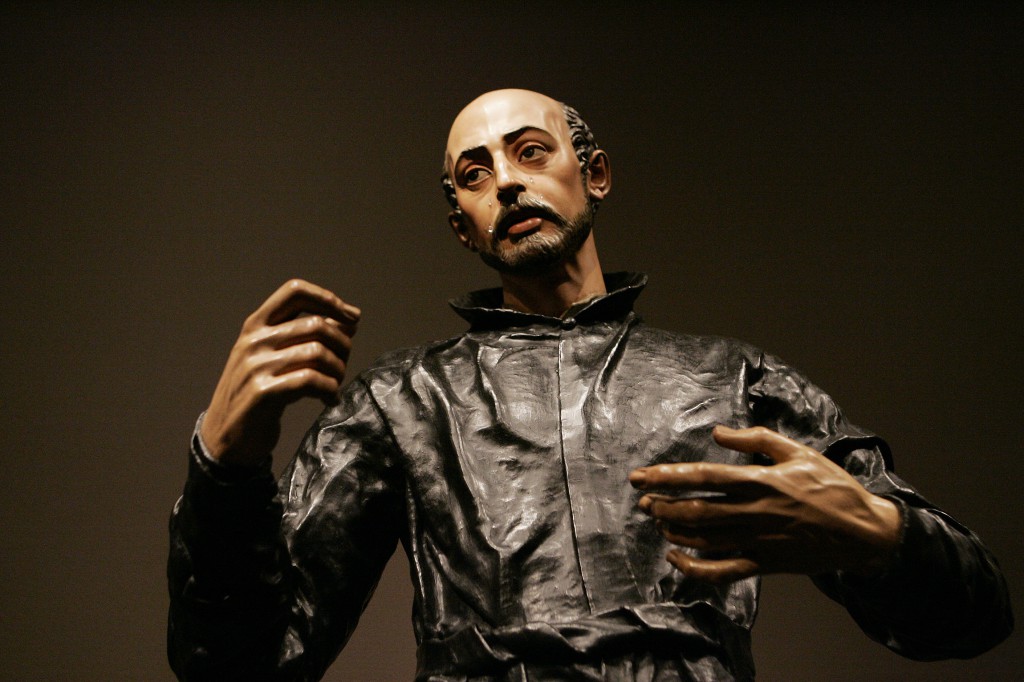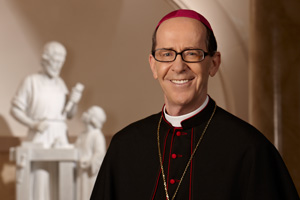
[dropcap type=”4″]T[/dropcap]o understand Pope Francis and his game plan for the Church, we need, says Cardinal Sean O’Malley, to keep in mind that he is “the quintessential Ignatian Jesuit.” From his youth when he was first attracted to the missionary spirit of the Jesuits, he has been inspired and shaped by the rich charism and spiritual vision of St. Ignatius of Loyola.

In this part of my series on Pope Francis’ Game Plan, then, it seems helpful to look at key elements of the Ignatian charism that are evident in the Holy Father’s Apostolic Exhortation, the “Joy of the Gospel.”
Ad Maiorem Dei Gloriam
Four Latin words or their equivalent are repeated by St. Ignatius 376 times in the Constitution that he composed for the Society of Jesus; the words are Ad Maiorem Dei Gloriam. The founder of this Apostolic Religious Institute, begun nearly 500 years ago, left no doubt about the first priority of every Jesuit: to give ever greater glory to God. Do we not find this same desire in Pope Francis?
“How I long,” he writes (#261), “to find the right words to stir up enthusiasm for a new chapter of evangelization full of fervor, joy, generosity, courage, boundless love and attraction!” He also says (#259), “Jesus wants evangelizers who proclaim the good news not only with words, but above all by a life transfigured by God’s presence.”[quote_box_right]
Pope Francis’ Game Plan
Read more columns from this series by Bishop Olmsted.
[/quote_box_right]
Through St. Ignatius, the Lord stirred up a new missionary impulse in the Church of the 16th century, which had been badly weakened by the Protestant Reformation and further injured by constant warfare between Muslims and Christians. To successfully address the missionary challenges of his day, St. Ignatius knew that the first and constant focus needed to be on the majesty of God. Everything had to be dedicated to His glory, honor and praise.
Life Centered on Jesus
The new religious institute that he founded was intentionally not called “the Ignatians.” While followers of Luther became known as Lutherans, and followers of Calvin known as Calvinists, St Ignatius insisted that this new institute be identified with the name of Jesus. So it is called the Society of Jesus. What mattered most was a personal love of Jesus and a deep desire by each member to be counted among His closest companions.
It is not surprising, then, that Pope Francis begins his Apostolic Exhortation with the following words, “The joy of the Gospel fills the hearts and lives of all who encounter Jesus. Those who accept His offer of salvation are set free from sin, sorrow, inner emptiness and loneliness. With Christ joy is constantly born anew.”
The Spiritual Exercises of St. Ignatius, so familiar to all Jesuits and many others in the Church, help each of us to come to an ever deeper knowledge and love of Jesus and a fuller surrender to His call.
Thinking with the Church
In the Spiritual Exercises, St. Ignatius included “Rules for Thinking with the Church.” These rules reflect the founder’s desire to foster a love for Jesus’ Bride, the Church, which is both affective and effective, flowing from both the head and the heart. The aim was to form servants of the Church as she concretely exists on earth, as the beautiful Bride of Christ and yet always in need of on-going reform and renewal under the light of the Holy Spirit.
Since the Society of Jesus was founded in the rough and tumble throes of the Protestant Reformation, love for the Church required that the integrity of the Catholic faith be wisely and vigorously defended; it required even more that the Gospel be presented in the most attractive and convincing manner possible.
We see a similar love for the Church in Pope Francis when he exhorts all the baptized to be missionaries. He writes (#27), “I dream of a ‘missionary option’, that is, a missionary impulse capable of transforming everything, so that the Church’s customs, ways of doing things, times and schedules, language and structures can be suitably channeled for the evangelization of today’s world rather than for her self-preservation.”
Every Jesuit, in order to think with the Church, is trained in discernment, the art of good decision-making. He strives for “the discipline of indifference,” which means a healthy detachment from anything that could hinder one’s daily adherence to the will of God. He also strives to be grounded in the practice of daily prayer, so as to follow always the Spirit’s lead and adapt to the constantly changing needs of persons in the Church and the world.
According to Pope Francis, good discernment requires (#262) “the ability to cultivate an interior space which can give a Christian meaning to commitment and activity. Without prolonged moments of adoration, of prayerful encounter with the word, of sincere conversation with the Lord, our work easily becomes meaningless…The Church urgently needs the deep breath of prayer.” With proper discernment and intense prayer, the temptation to a privatized spirituality is avoided and the grace needed for charity and apostolic witness is never lost.
Following the pastoral leadership of the Holy Father, our first Jesuit Pope, let us pray that God the Father will draw each of us into an ever closer bond of love with Jesus, a faithful and discerning heart, and a deep longing to do everything for the greater honor and glory of God.






